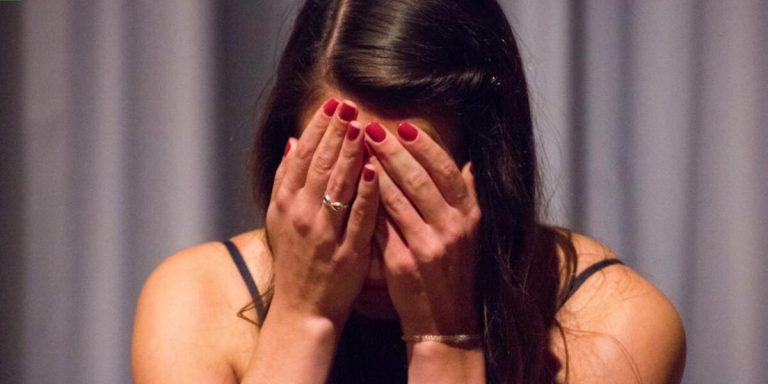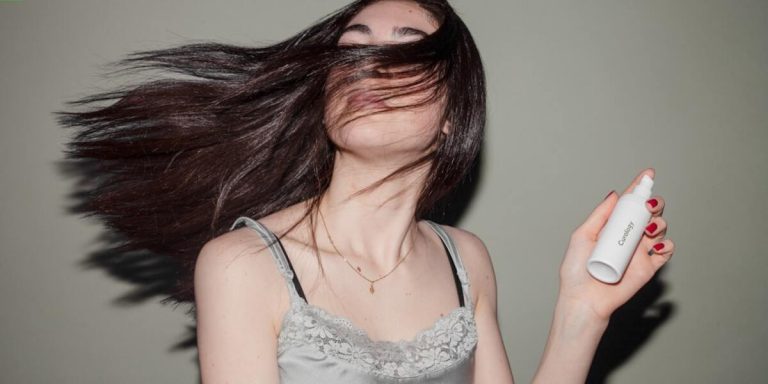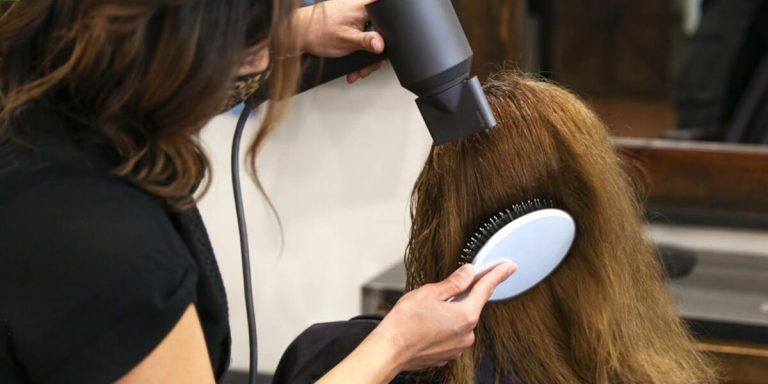Which Vitamin Deficiency Causes Hair Loss? Delving Into the Science Behind It.
In our quest for lustrous locks and veering off hair loss, we often find ourselves asking “Which vitamin deficiency causes hair loss?” It’s quite a pertinent question, mainly because the health of our tresses is intrinsically linked to what nourishment they receive. This article will highlight this intriguing intersection between vitamins and hair health, unfolding the complex science behind it.
Tackling alopecia requires understanding its root cause – inadequate nutrition being one of them. You might not realize this but certain nutrient deficiencies can trigger excessive shedding or prevent new growth altogether. In fact, thinning mane can be your body’s SOS signal indicating something amiss in your diet chart!
Herein lies the importance to delve into these nutritional aspects that directly influence your crowning glory.
Did you know?
A little-known fact is that the deficiency of Vitamin D, often termed as the ‘sunshine vitamin’, can significantly contribute to hair loss. Scientists associate this with its role in stimulating new and old hair follicle cells.
Understanding Hair Loss: Key Nutritional Deficiencies
Hair loss is a concern that many people face and it’s crucial to note the significant role of nutrition in hair health. Specifically, vitamin deficiencies can be major contributors to hair thinning or baldness. Essentially, our tresses require vital nutrients to grow strong and healthy – with vitamins topping this list.
An understanding of these key nutritional deficiencies will help you know exactly what your body may need for optimal follicle function. The most notorious culprit when discussing nutrient-related hair loss is perhaps vitamin D deficiency; its insufficiency has been linked extensively with alopecia areata – an autoimmune disorder characterized by severe hair fall.
Other notable Vitamins include B-vitamins like biotin (vitamin B7) which helps convert certain nutrients into energy and plays an important part in maintaining the health of your skin, nerves, digestive system but more importantly here- your Hair! Then there’s Vitamin E packed full on antioxidants working diligently behind scenes fighting oxidative stress which could otherwise hamper good growth leading us down dreaded path towards losing precious strands before time.
Lastly let’s not forget iron; while technically not a vitamin itself , Iron-deficient individuals often experience anaemia causing hairs prematurely enter telogen phase consequently becoming brittle prone breakage over period prolonged inadequacy ultimately results marked reduction volume density head mane.
The Impact of Vitamin D on Hair Health and Growth
Vitamin D, widely known for its role in bone health, plays a significant part in the maintenance and development of hair follicles. A deficiency in this essential nutrient is often linked to alopecia areata, an autoimmune disorder that triggers severe hair loss. The crux here is understanding how exactly Vitamin D works towards promoting healthy hair growth.
The science behind it involves the creation of new follicles – small pores where new hairs can grow. This process helps maintain your scalp’s thickness and volume as you age. When there’s insufficient Vitamin D present within your system, these newly formed follicles may struggle to properly mature or fail altogether causing thinning and brittle strands which eventually leads to falling out prematurely.
Vitamin deficiencies significantly impact our hair health, and going deeper into this concept reveals that a prolonged lack of nutrients disrupts hair strands’ lifecycle by pushing them prematurely into a dormant phase. This leads to excessive shedding and restricted regrowth due to the absence of essential nutrients like proteins, which are typically found in the human diet. Keep in mind that specific vitamin deficiencies can lead to hair loss.
Iron Deficiency: How Low Levels Can Lead to Shedding
Iron is a vital nutrient for our body, playing an essential role in various bodily functions. It has particular importance when it comes to hair health. Iron deficiency can silently creep into your system and cause significant damage before you even realize its presence.
When iron levels dip below the recommended range, your body enters survival mode. This means resources are channeled towards vital organs that need them most – at the expense of others like hair follicles. The result?
Diffuse thinning or perhaps noticeable shedding – signs which may raise alarm bells about possible iron deficiency being one reason behind your hair loss predicament.
Research shows that this mineral plays a key part in DNA synthesis, including cells responsible for promoting healthy growth cycles of hairs on our scalp. Inadequate intake might interrupt these very processes leading not just towards stunted growth but also increased fragility making strands more prone to breakage.
To make matters worse, women especially during menstruation or those who follow vegetarian diets could be at higher risk given they lose out on natural sources rich in heme-iron available predominantly from meat-based food items so it’s crucial not just identifying potential risks early but seeking appropriate supplementation under guidance based upon individual needs if needed.
Unveiling the Role of Vitamins in Maintaining Healthy Locks
The health of your hair significantly depends on the nutrients you consume, including vitamins. In fact, deficiencies in certain vitamins can often lead to unanticipated hair loss. While this connection may not be apparent at first glance, understanding it can equip us with preventative measures that promote healthier locks.
Vitamins are essential for maintaining overall body functions and they play a particularly crucial role in preserving our scalp’s integrity too. For instance, Vitamin D facilitates new follicle growth while Vitamins A and C contribute towards sebum production – the natural oil protecting our scalp from drying out excessively- which makes them indispensable when considering maintenance factors affecting healthy locks.
Unfortunately, the absence of key players like essential vitamins is quite common today. Reasons for vitamin deficiencies include unhealthy diets and stress-induced routines. As a result, individuals across all age groups worldwide experience undesirable effects such as perpetual hair loss. Researchers continually strive to better understand how to optimize dietary intake to counteract these situations and ensure a full head of lush tresses, highlighting the importance of understanding ‘Hair Loss Causes‘.
Biotin (Vitamin B7) and Hair Loss Connection
Biotin, often referred to as Vitamin B7, plays a crucial role in maintaining healthy locks. If you’ve been noticing more hair on your brush or shower drain than usual, it might be due to insufficient levels of this essential vitamin.
To understand the connection between biotin and hair loss better, let’s dive into how exactly this nutrient affects our tresses.
Firstly, Biotin is vital for producing keratin in the body – a type of protein that makes up most of our hair structure. When we have enough biotin present in our bodies – either naturally produced or supplemented through diet – then proper amounts of keratin are generated and each strand stays strong.
But what occurs when there’s an imbalance? This brings us back to address “which vitamin deficiency cause hair loss?” With inadequate quantities of biotin consumed regularly – whether from one’s dietary habits like low-biotin diets or certain medical conditions such as Crohn disease impacting absorption rates- individuals may start losing their precious strands leading them down the path towards thinning crowns and receding frontlines!
Exploring Vitamin A’s Dual Role in Supporting & Undermining Hair Integrity
Vitamin A, typically championed for its skin and vision benefits, plays a significant role in maintaining our crowning glory as well. It helps cells grow efficiently including those constituting the hair follicles. This growth support is vital to sustain healthy strands of hair, hence preventing breakage and thinning.
Excessive vitamin A intake can cause severe hair loss, propelling your system into overdrive. Thus, monitoring your consumption is crucial. Balancing high-impact vitamins resembles walking a tightrope; having too little can lead to deficiency-related issues like dry or thinning hair highlighting the importance of addressing the question “Which vitamin deficiency causes hair loss?” However, having too much could trigger toxic side effects such as premature shedding.
Now if you are questioning how this ‘Goldilocks’ amount should be determined—here’s where professional guidance comes in handy. Reaching out to dieticians or nutritionists who understand your unique medical history could help create a personalized plan incorporating just the right dosage.
Naturally, certain tell-tale signs indicate if Vitamin A has crashed the scalp party.
Experiencing dizziness unusually often? Yup another whiff.
Are blisters making frequent appearances on your skin? Time for some spotlight scrutiny!
Addressing Vitamin Shortfalls to Combat Thinning Tresses
In the pursuit of preventing and mitigating hair loss, understanding the connection between vitamin deficiency and thinning tresses is critical. Recent studies indicate that inadequate intake or absorption of certain essential vitamins can indeed contribute to a disrupted hair cycle, leading to noticeable changes in volume, strength, and growth rate.
Biotin, or Vitamin B7, plays a crucial role in keeping hair healthy. This water-soluble substance helps convert nutrients into energy and reinforces the keratin infrastructure, a protein that makes up our hair structure. Insufficient levels of biotin from poor diet choices or digestive disorders like inflammatory bowel disease (IBD) can lead to noticeable declines in scalp health, nails, and skin condition.
Iron is another vital mineral for maintaining lush curls, as it’s crucial for the production of hemoglobin. Hemoglobin promotes oxygen circulation through cell structures, including hair follicles. This nourishment keeps them active throughout their life cycle—from growing (anagen) to resting (telogen). Insufficient iron can slow down this process and make strands more likely to fall out prematurely—an issue more common in women than men, primarily due to menstrual losses during child-bearing years.
With these insights firmly established by science as we move forward into 2023 should alert us about ensuring balanced dietary consumptions incorporating multiple food sources richly endowed with such compounds alternatively considering supplements under professional supervision if necessary giving only the best chances against future unexpected bald patches!
Folic Acid’s Crucial Function in Cell Renewal and Follicle Vitality
Let’s delve into how Folic Acid contributes towards maintaining lush tresses.
The primary purpose served by folic acid lies within its name- ‘foliage’. Just as foliage refers to plants’ leaves necessary for thriving vegetation, folic acid is indispensable for cell division and growth. In other words, it aids in creating new cells and refurbishing existing ones – tasks vital for healthy hair follicles.
Hair follicles are responsible for your hairs’ lifecycle from their birth until they fall out naturally. A constant supply of newly formed cells ensures these cycles continue uninterrupted resulting in steady growth. When you suffer from a lack of Folic Acid, new cell production decreases affecting your follicle vitality ultimately causing thinning or falling hair.
further research delineates how inadequate levels of folic acid lead to premature graying due to decreased melanin production – another imperative element contributing towards youthful glossy locks.
It’s clear then; boosting your daily intake with foods rich in folate like spinach, citrus fruits or fortified cereals can help stave off issues related directly or indirectly with “hair loss caused by vitamin deficiencies”.
While supplementing via dietary changes helps restore the balance over time preventing further damage but if you’ve already started experiencing substantial thinning consult healthcare professionals without delay.
Evaluating Omega-3 Fatty Acids for Scalp Nourishment and Their Effect on Hair Density
The significance of Omega-3 fatty acids cannot be overstated in the quest to maintain healthy, dense hair. Predominantly found in fish like salmon and trout, chia seeds, flaxseeds, walnuts and avocados among others; Omega-3 get less attention than they warrant when discussing which vitamin deficiency cause hair loss.
Omega-3 is pivotal for scalp nourishment. The connection between a moisturized scalp with rich nutrients and flourishing locks is significant. Healthy fats are key components of cell membranes throughout your body including those on your scalp surface.
A well-nourished scalp implies healthier follicles which leads to denser growth patterns.
Moreover, it’s not just about consumption but absorption too! Having adequate levels circulating within your system can ensure effective nutrient delivery topically right where it counts – at the root level meaning more robust strands sprout forth from each individual pore thus increasing overall volume.
To sum up succinctly: addressing nutritional deficiencies such as being low on omega 3 through diet modification should be paramount while exploring ways to combat receding manes due to aging or health conditions alike especially considering their proven benefits towards improving quality along with quantity simultaneously thereby hitting two birds with one stone!
Conclusion
In the hair-raising journey of identifying “which vitamin deficiency causes hair loss”, we’ve examined scientific studies, delved into nutritional facts, and busted a few myths. It is clear that our tresses demand more than just regular care; they need their vitamins too! So whether you’re dealing with thinning strands or worrying bald patches, remember to replenish not only your scalp but also your body’s supply of essential nutrients.
This chapter concludes our exploration of vitamin deficiencies causing hair loss, but many aspects still need investigation to fully understand this complex issue. Explore hormonal imbalances or stress factors that contribute to hair fall for a more comprehensive insight. Keep your curiosity alive and read more informative articles on our website under ‘Hair Loss Causes‘. You hold the power to prevent further shedding – keep learning!







